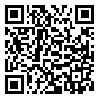Volume 25, Issue 97 (7-2025)
refahj 2025, 25(97): 107-133 |
Back to browse issues page
Ethics code: IR.BPUMS.REC.1401.082
Download citation:
BibTeX | RIS | EndNote | Medlars | ProCite | Reference Manager | RefWorks
Send citation to:



BibTeX | RIS | EndNote | Medlars | ProCite | Reference Manager | RefWorks
Send citation to:
Khaleghi M M, Momeni K, Boostanizadeh H, Ebrahimi A. (2025). The role of attitude towards relationship education on learning anxiety and academic burnout in students of Bushehr University of Medical Sciences in 2022. refahj. 25(97), : 4 doi:10.32598/refahj.25.97.4346.1
URL: http://refahj.uswr.ac.ir/article-1-4204-en.html
URL: http://refahj.uswr.ac.ir/article-1-4204-en.html
Abstract: (1795 Views)
Introduction: The use of virtual social networks as one of the new tools of information and communication technologies has been greatly welcomed in recent years. The present study was conducted with the aim the role of attitude towards virtual education on learning anxiety and academic burnout in students in 2022.
Method: The current research is applied in terms of its purpose and descriptive in terms of correlational research method. The statistical population includes all students of Bushehr University of Medical Sciences who were studying in Academic year of 2021-2022 and 331 people were selected as a sample using simple random sampling method. In order to collect the required data, the questionnaires of attitude towards virtual education, Pakran’s learning anxiety, and academic burnout by Bresso and colleagues were used.
Findings: Learning anxiety did not have a significant effect on students’ academic burnout, and no meaningful relationship was found between attitudes toward virtual education and either learning anxiety or academic burnout. However, more than half of the participants had a positive attitude toward virtual learning, while most reported moderate to high levels of learning anxiety. The average academic burnout score among them was at a moderate level.
Discussion: Despite the generally positive attitude of students toward virtual education, many students experienced high levels of learning anxiety. Overall, virtual education was considered acceptable by students. It is recommended that educational workshops, skill enhancement programs, and psychological support services be implemented to reduce students’ anxiety and enhance their educational performance.
Method: The current research is applied in terms of its purpose and descriptive in terms of correlational research method. The statistical population includes all students of Bushehr University of Medical Sciences who were studying in Academic year of 2021-2022 and 331 people were selected as a sample using simple random sampling method. In order to collect the required data, the questionnaires of attitude towards virtual education, Pakran’s learning anxiety, and academic burnout by Bresso and colleagues were used.
Findings: Learning anxiety did not have a significant effect on students’ academic burnout, and no meaningful relationship was found between attitudes toward virtual education and either learning anxiety or academic burnout. However, more than half of the participants had a positive attitude toward virtual learning, while most reported moderate to high levels of learning anxiety. The average academic burnout score among them was at a moderate level.
Discussion: Despite the generally positive attitude of students toward virtual education, many students experienced high levels of learning anxiety. Overall, virtual education was considered acceptable by students. It is recommended that educational workshops, skill enhancement programs, and psychological support services be implemented to reduce students’ anxiety and enhance their educational performance.
Article number: 4
Keywords: academic burnout, attitude towards virtual education, learning anxiety, students, e-learning
Type of Study: orginal |
Received: 2023/05/7 | Accepted: 2024/07/22 | Published: 2025/07/6
Received: 2023/05/7 | Accepted: 2024/07/22 | Published: 2025/07/6
Send email to the article author
| Rights and permissions | |
 |
This work is licensed under a Creative Commons Attribution-NonCommercial 4.0 International License. |








